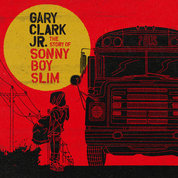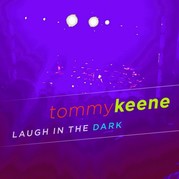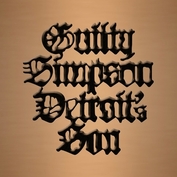
The Music Ramble is the weekly sports blog of Erik Ritland. The St. Paul, Minnesota journalist and musician is the founder of Rambling On. Learn more about us on Reddit, Twitter, Facebook, or our website.
This months round of new releases includes Gary Clark Jr.'s contemporary blues classic The Story of Sonny Boy Slim, song driven power pop from Tommy Keene, and Guilty Simpson's organic Detroit's Son.

Gary Clark Jr.
The Story of Sonny Boy Slim (Warner Bros. 9/11/2015)
Essential tracks: "The Healing," "Grinder," "Our Love," "Church," "Hold On," "Wings."
Gary Clark Jr. continues the diverse, exploratory nature of his debut album Black and Blu with its follow up, The Story of Sonny Boy Slim. Instead of relying solely on flashy guitar work, or sticking to ordinary blues/rock, he brings in a variety of sources and sounds with strong results. There are shades of Sly and the Family Stone, Curtis Mayfield, Jimi Hendrix, James Brown, B.B. King, George Clinton, Robert Cray, Junior Kimbrough, Michael Jackson, and others.
Opening "The Healing" has a blues foundation but also features elements of soul, funk, and hip hop. "Grinder" and "Wings" do the same thing, the latter especially reaching back to the soul and funk origins of hip hop. The tasteful (though still at times blistering) guitar playing is as much Curtis Mayfield as it is Jimi Hendrix.
The rest of the album touches on an array of Cosmic American Music. "Star," "Our Love," and "Cold Blooded" dip into deep funk and soul, while the borderline folk/rock of "Church" is built around an unpredictable chord progression. Horn driven "Hold On" channels Robert Cray, "Stay" features a heavy riff and is the most rock oriented track, and hypnotic "Shake" is straight up Junior Kimbrough. Michael Jackson/Bruno Mars-ish "Can't Sleep" should be a huge hit, and "Down to Ride" is (I'm not kidding) slow grinding '80s rhythm and blues.
Clark pulls all this together with ease and confidence He's smart, never trying anything he's too uncomfortable with but also unafraid to try different things. His smooth voice and excellent guitar playing provide its foundation, but The Story of Sonny Boy Slim is successful because it cohesively brings together so many strains of American music.

Tommy Keene
Laugh in the Dark (Second Motion 9/4/2015)
Essential tracks: "Out of My Mind," Laugh in the Dark," "Alone in These Modern Times," "All Gone Away."
Although he had a loyal following, Tommy Keene was an undervalued songwriter. His last album, Laugh in the Dark, proved as much. Catchy hooks and memorable melodies are wrapped in a big, power pop wall of sound.
Keene's albums are all about songcraft. The bright jangle of "Out of my Mind," rocking Paul Westerberg-ish "All the Lights are Alive," the sunny pop of "Last of the Twilight Girls," and big, catchy "Alone in These Modern Times" are each effortless. Jaunty "Go Back Home" is more blues and jazz influenced, featuring tasteful slide guitar and a unique chord progression. "All Gone Away" is a classic epic album closer, maudlin and led by spacey synths and swirling organ.
Laugh in the Dark takes its cue from albums like Sgt. Pepper. There's a cohesive sound and each track flows to the next without interruption. Like a classic album it also isn't too long, leaving you wanting more instead of wanting to skip over filler. Tommy Keene knew what he was doing and he did it well. He will be missed.

Guilty Simpson
Detroit's Son (Stone's Throw 9/11/2015)
Essential tracks: "RIP," "Blunts in the Air," "Fractured"
Although Guilty Simpson's rapping is cool and confident it's the beats (supplied by Katalyst of the group Quakers) that drive Detroit's Son. They're mostly minimalistic, focusing on thick fuzz bass and organic sounding drums, but they also have flares of '60s soul, G-funk, Hendrix influenced '60s rock, and even spacey Sun Ra type jazz. It's something like the '00s version of fusion. "RIP," "Blunts in the Air," "The D," "Ghetto," and "Fractured" are the best examples this approach. The erratic drums and big, funky, swirling synths of "Blue Collar" is also a highlight (and features a kick ass guest verse from Elzhi).
Simpson doesn't beat you over the head with second-rate social and political commentary, either, which is another attribute that sets him apart from his contemporaries. When he does it's spot on, as the minimalistic piano led "Money" proves.
It loses a little steam towards the end, but for the most part Detroit's Son is filled with creative, laid back, organic hip hop.
 RSS Feed
RSS Feed
